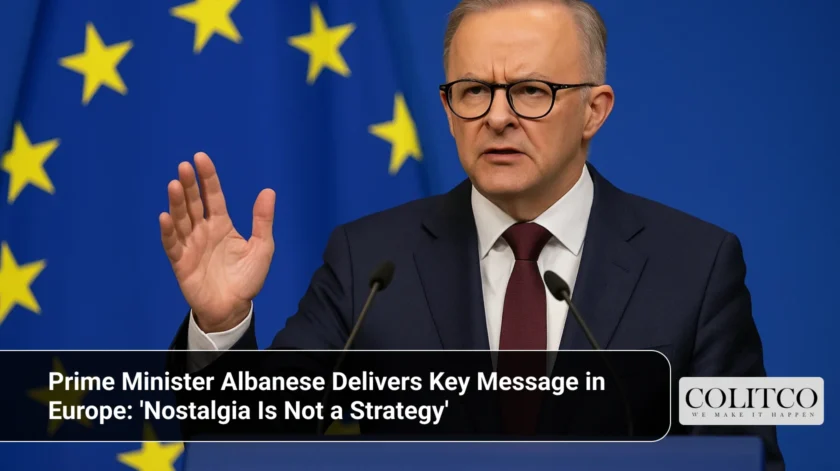Prime Minister Anthony Albanese addressed an international audience in Europe, delivering a clear message that the world must focus on present challenges rather than past glories. He emphasised that nostalgia offers no solutions in today’s rapidly changing global landscape. His speech aimed to redirect attention towards pragmatic and forward-looking strategies amid global uncertainties.
Addressing Economic and Global Challenges
Prime Minister Albanese spoke extensively about economic resilience and the importance of adapting to new realities. He warned against clinging to outdated approaches that may hinder progress. He stated that countries must strengthen their economies with innovation and sustainable growth. The Prime Minister pointed to recent global events that highlighted the need for dynamic policies, including supply chain disruptions and rising inflation rates affecting Europe and the Asia-Pacific region.
He cited the global inflation rate, which hovered around 5.3 per cent in 2025, as a pressing issue requiring collective action. Albanese urged policymakers to embrace fresh economic models rather than revert to past strategies that failed to anticipate such challenges.
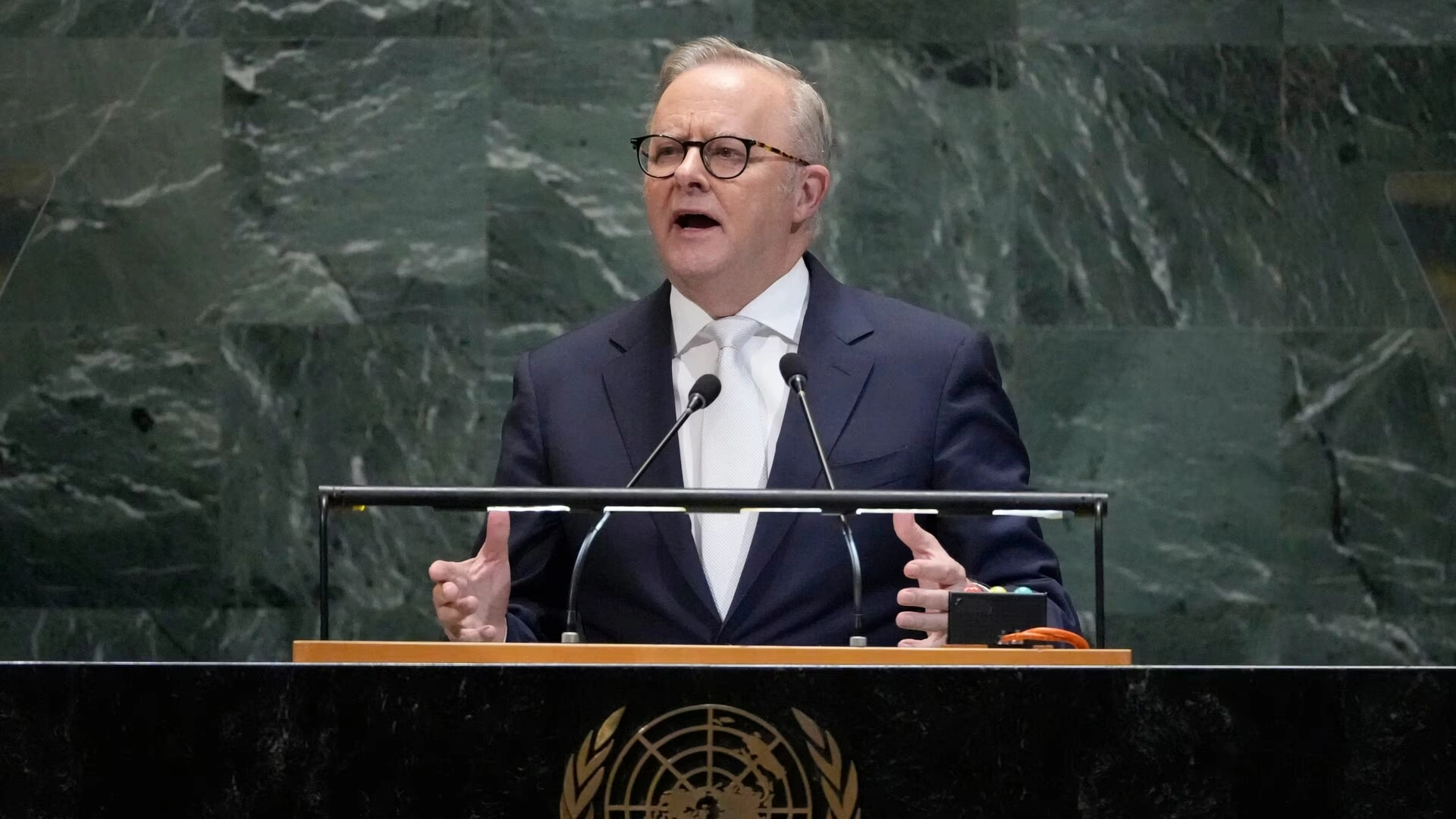
PM Anthony Albanese addresses the UN General Assembly
Focus on Climate Change and Renewable Energy
Another major theme in Albanese’s address was climate change. He stressed the urgency for all nations to commit to realistic, evidence-based environmental policies. Australia’s investments in renewable energy were highlighted as examples of practical steps that could be taken. The Prime Minister noted that coal and gas have long shaped energy policies but insisted the transition to renewables must be accelerated firmly and without hesitation.
He reminded the audience that Australia aims to increase its renewable energy capacity by 50 per cent by 2030, aligning with international climate goals. Albanese said that Australia does not seek to rely on nostalgic energy sources but instead views innovation as critical to future energy security.
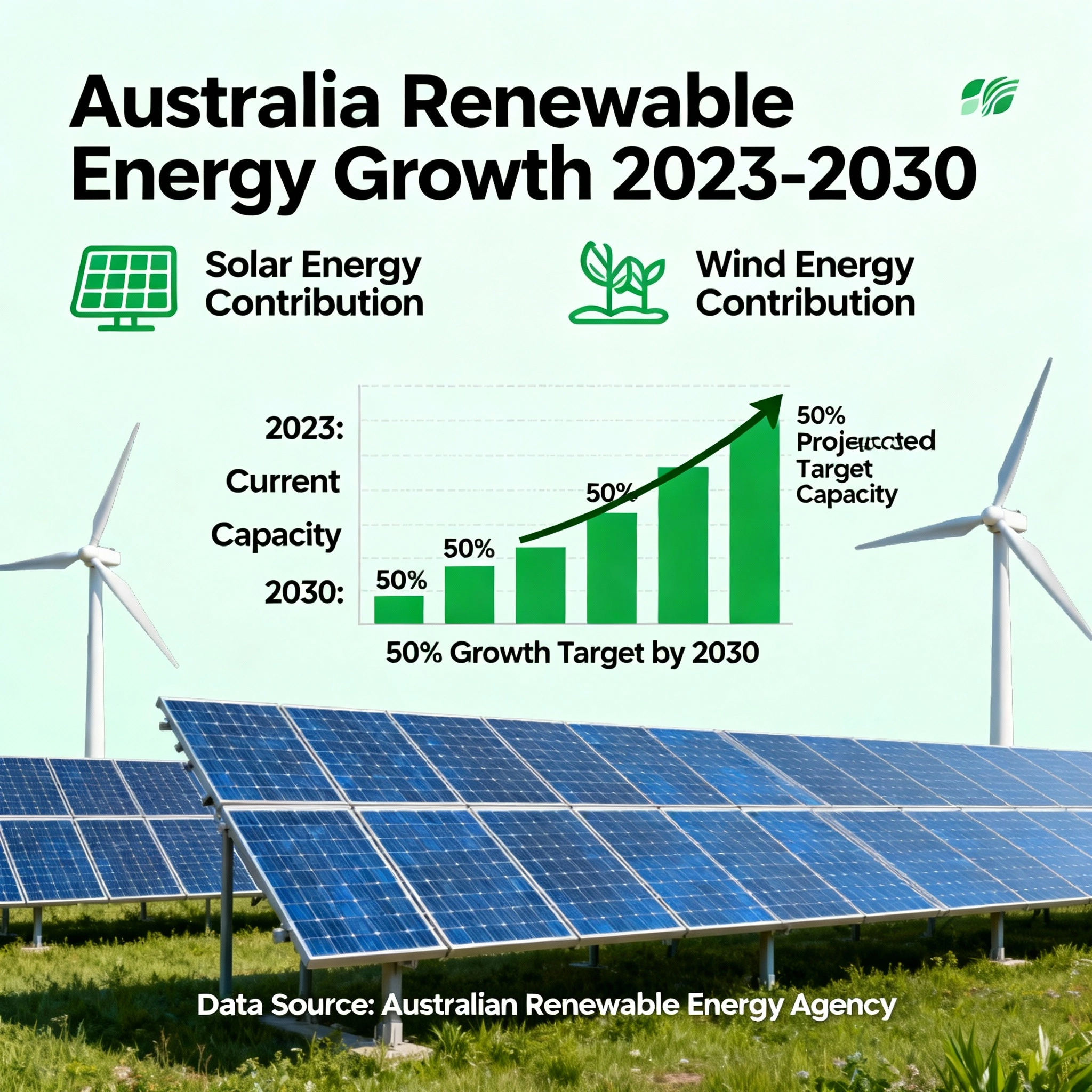
Australia’s renewable energy targets and progress
Strengthening International Partnerships
Prime Minister Albanese called for robust international cooperation. He underscored the value of partnerships based on mutual interests and future opportunities. The European Union and Australia, he said, must work together to address common challenges such as cybersecurity and trade diversification.
He cited a recent trade agreement between Australia and the EU which forecasts a 15 per cent rise in bilateral trade over the next five years. Albanese encouraged leaders to leave behind protectionist attitudes that were prevalent in earlier decades.
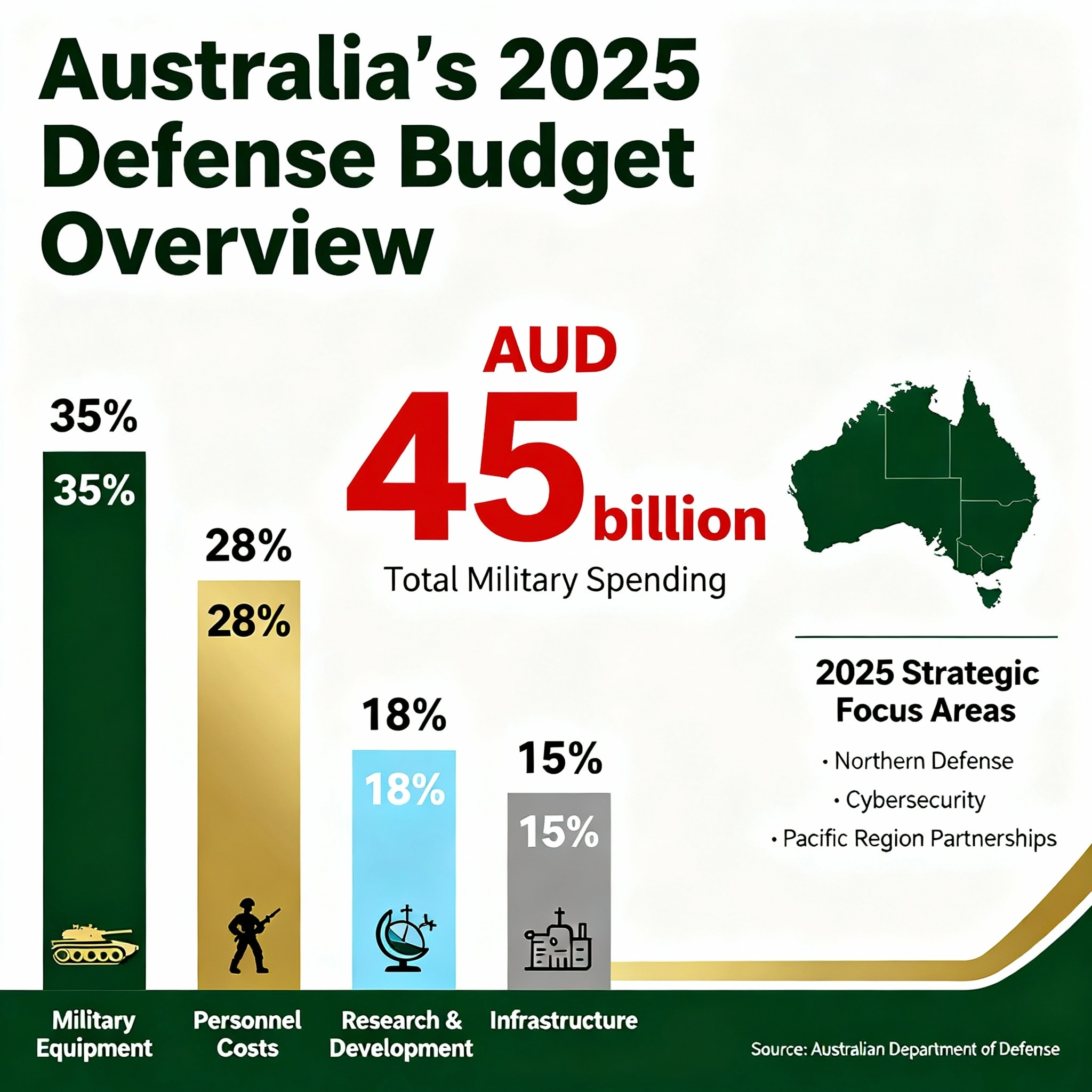
Australia-EU trade agreement projections
Security and Defence Commitments
The Prime Minister touched on security concerns in the Indo-Pacific region, stressing Australia’s commitment to ally partnerships. He mentioned ongoing defence collaborations and intelligence sharing as key to maintaining regional stability. Albanese urged global powers to prepare strategically for new security threats rather than revert to Cold War era tactics.
He also highlighted Australia’s increased defence budget, which rose to AUD 45 billion in 2025, as a commitment to meet emerging challenges. The message was clear: Australia embraces a forward-looking defence posture built on current realities.
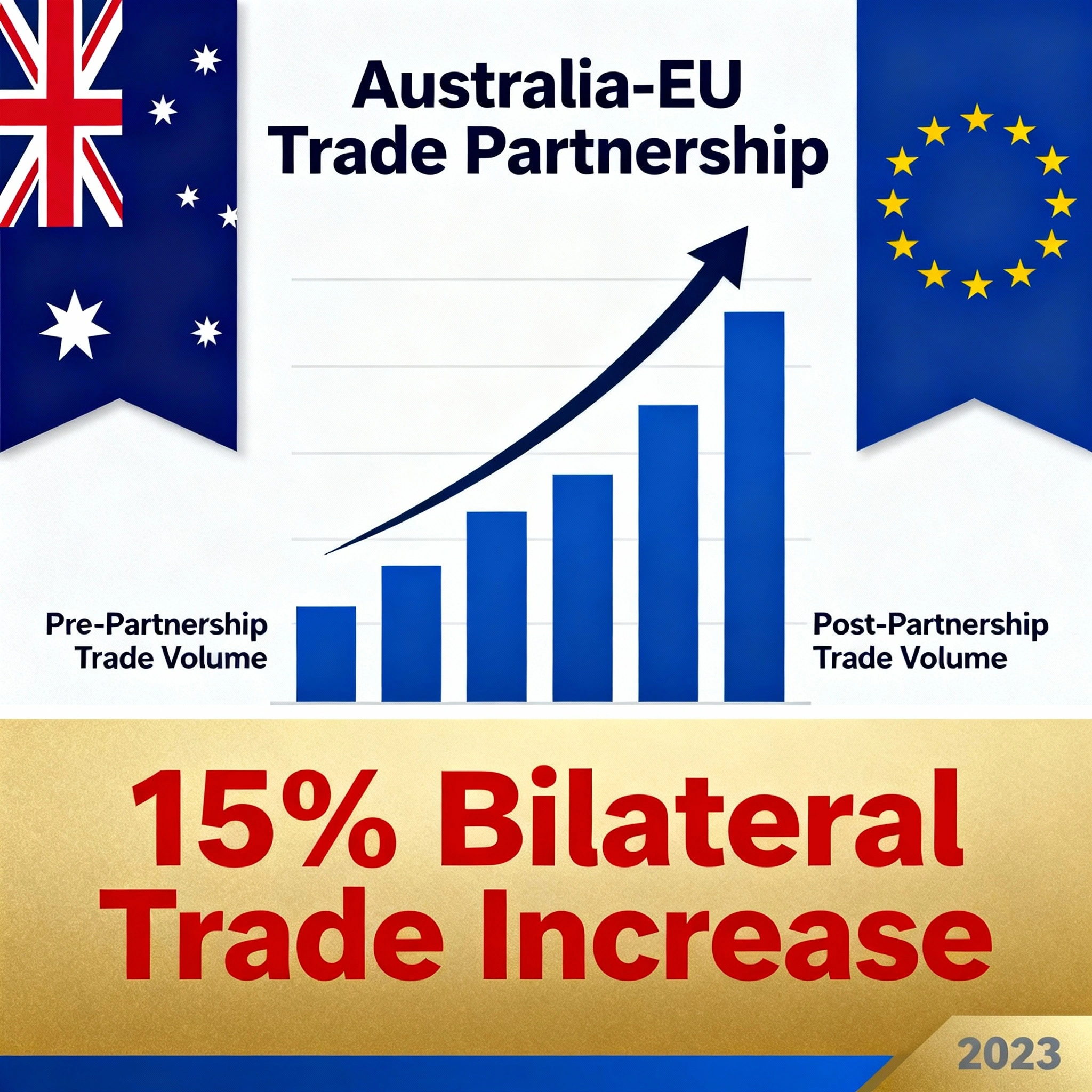
Australia’s defence budget allocation for 2025
Technology and Innovation as Drivers of Growth
Albanese highlighted technology’s role in shaping the future. He called on governments to support research and development to remain globally competitive. He praised Australia’s expanding tech sector, which contributed approximately 9 per cent to the national GDP in 2024.
The Prime Minister warned that reliance on past technological successes would limit future growth. Instead, continuous innovation should drive policy decisions and economic planning.
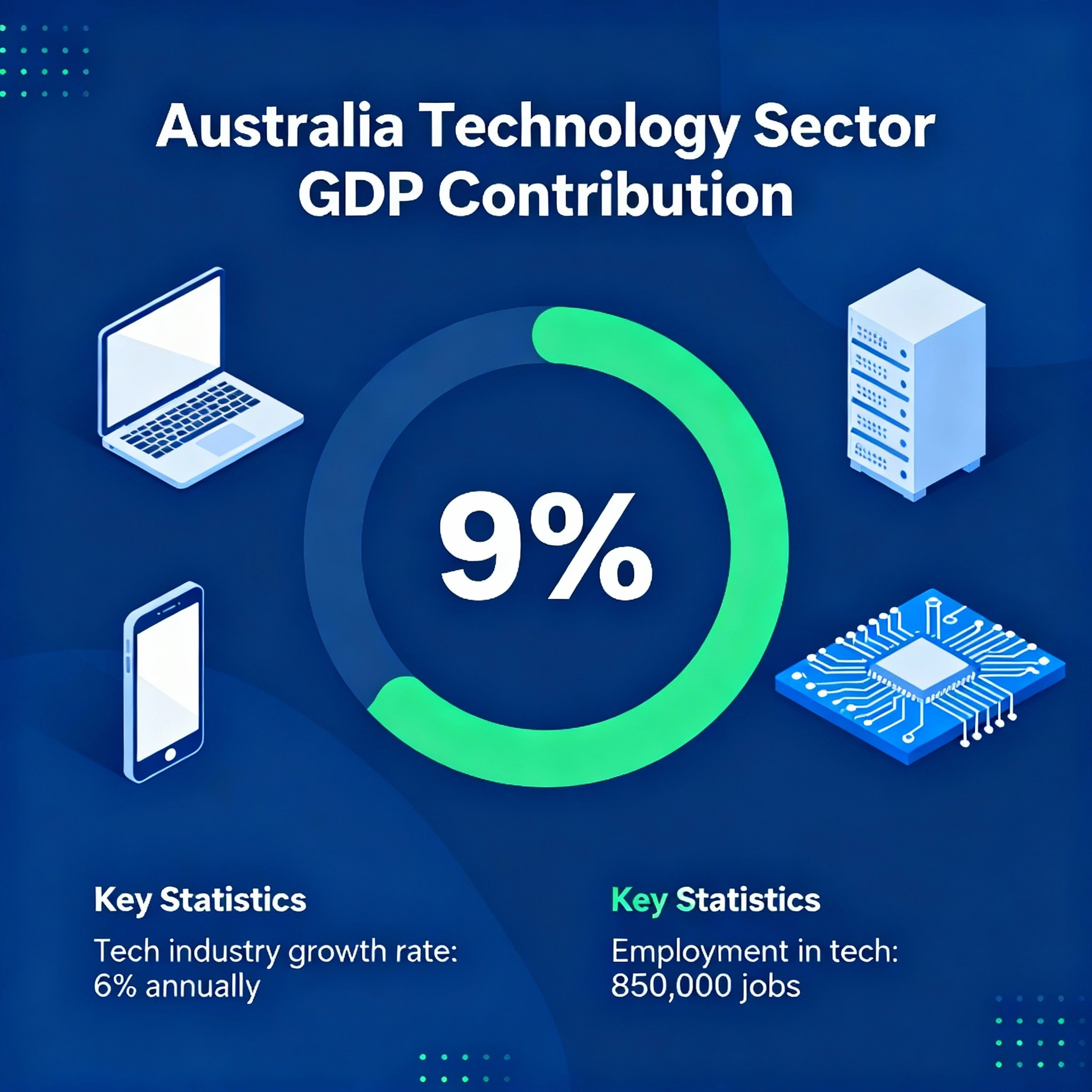
The technology sector’s contribution to the Australian GDP
Migration and Workforce Development
Another key point was Australia’s pragmatic approach to migration. Albanese outlined plans to skill-match migrants with emerging industry needs. He referenced the current migration intake of approximately 190,000 people per year as part of a strategy to strengthen workforce capabilities and support economic expansion.
He said migration policies should not be guided by nostalgic visions but by practical demands of the labour market. This approach aims to enhance productivity and meet future skill shortages.
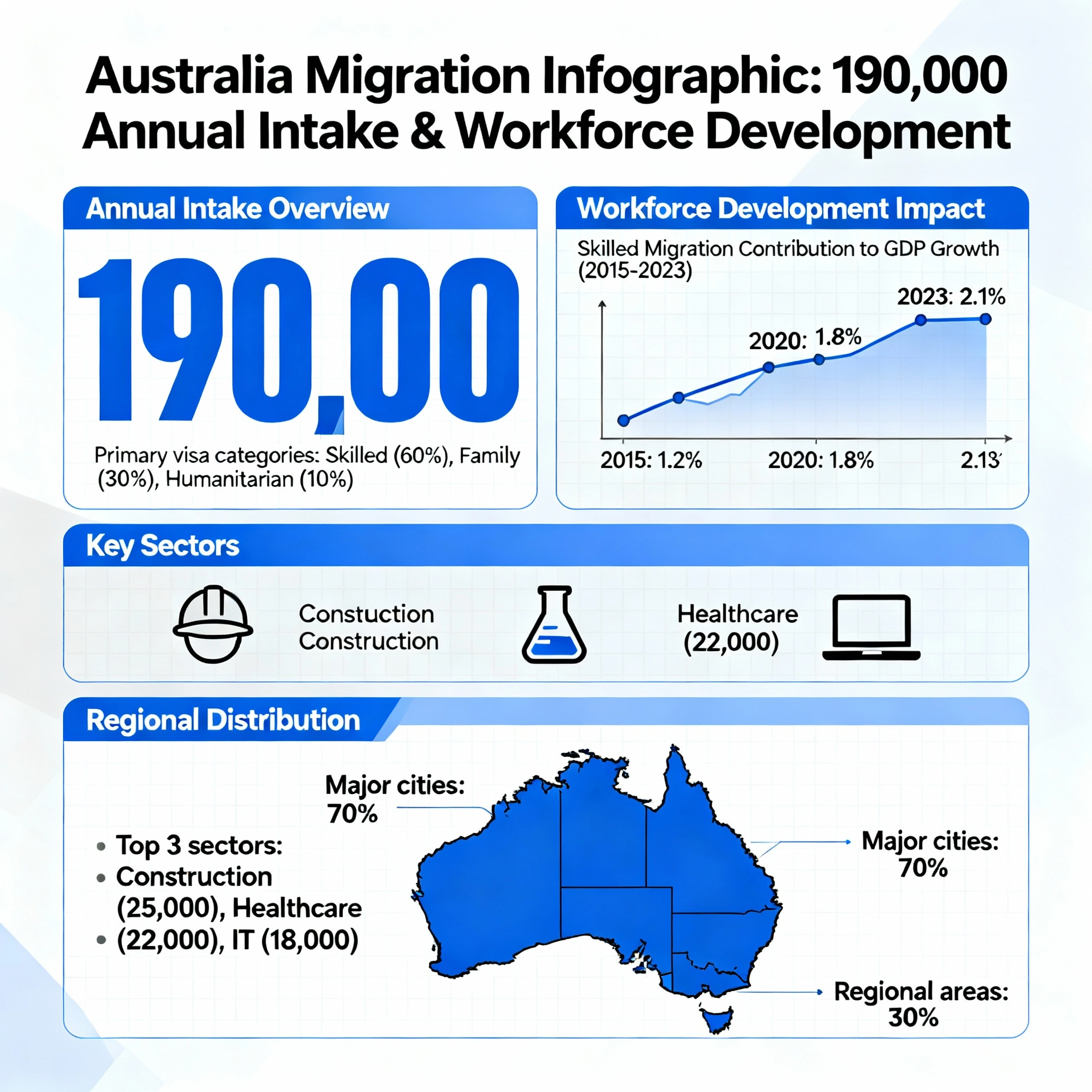
Australia’s annual migration intake and workforce planning
Conclusion: A Call for Practical Leadership
In closing, Prime Minister Albanese reiterated his statement: “Nostalgia is not a strategy.” He urged political leaders to think beyond the comfort of familiar approaches and focus on effective, evidence-based policies. Albanese emphasised that global challenges require collective and innovative leadership.
His European address set a clear tone for Australia’s international stance: prioritise dynamic adaptation over nostalgia. It reinforced Australia’s commitment to multilateral engagement, sustainable growth, and security cooperation. Albanese’s speech offered a clear vision aligned with contemporary realities and future opportunities in a complex world.

